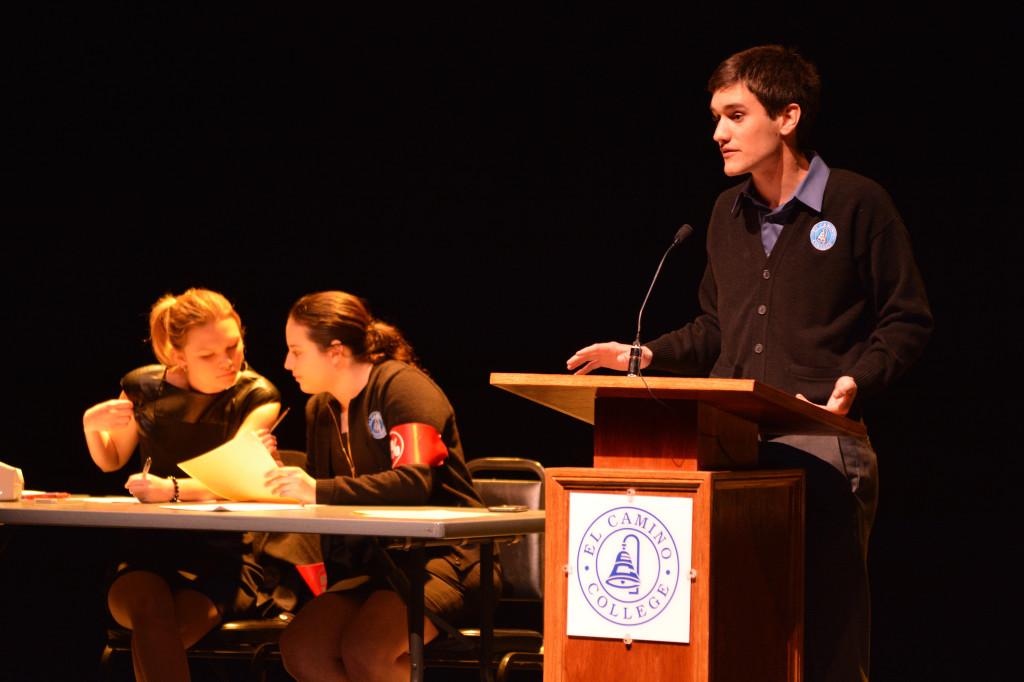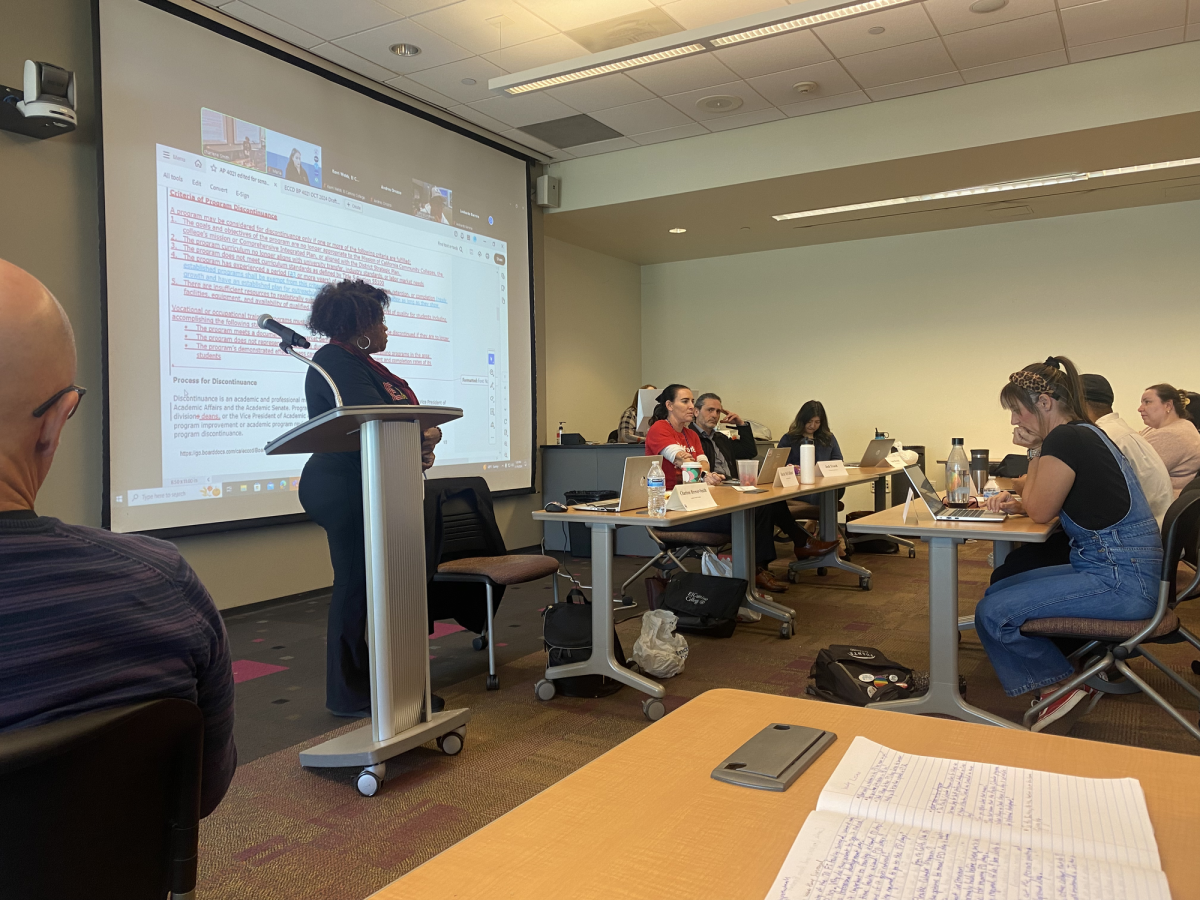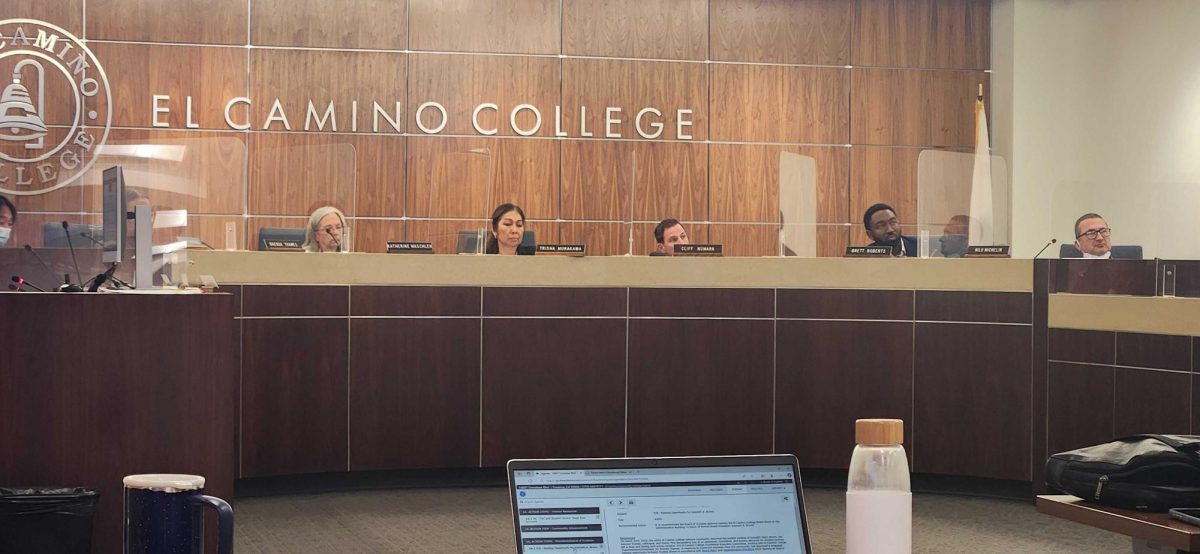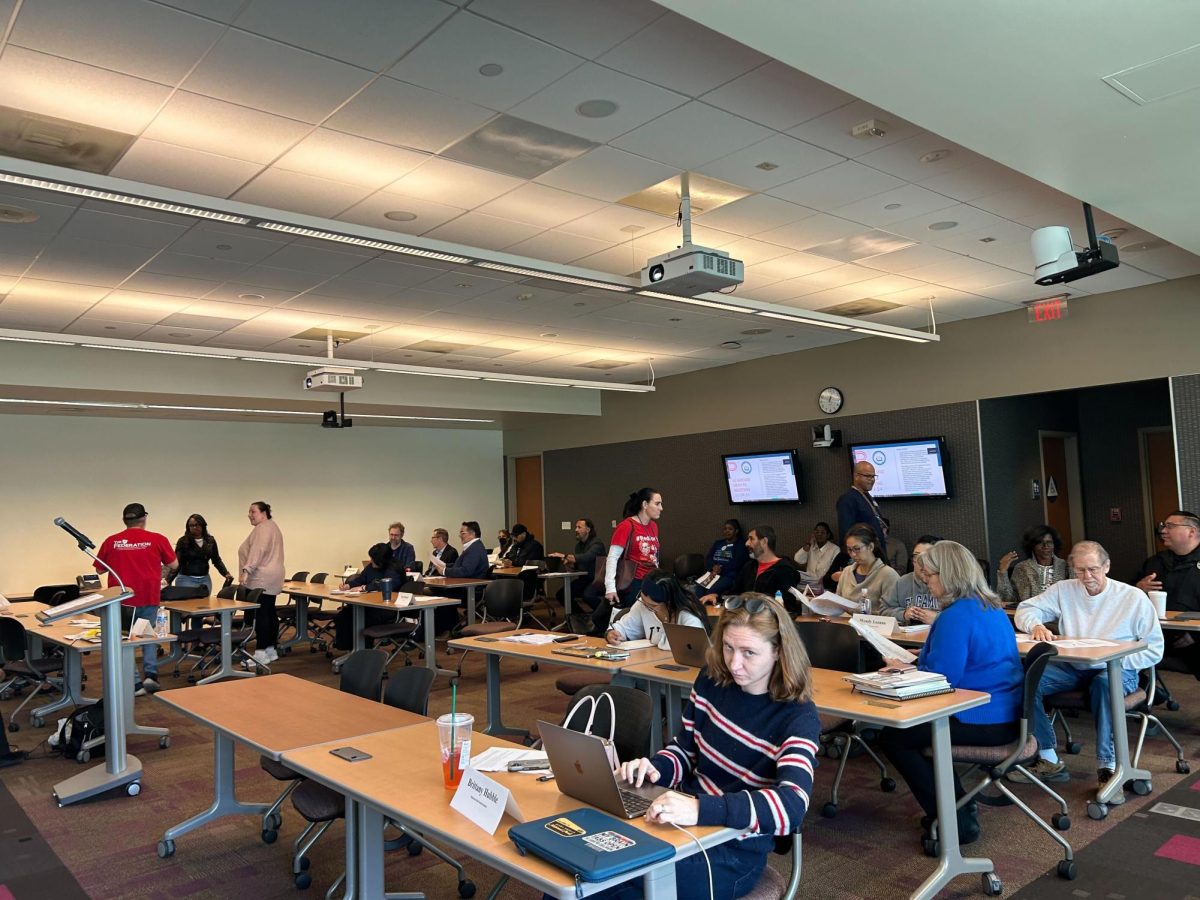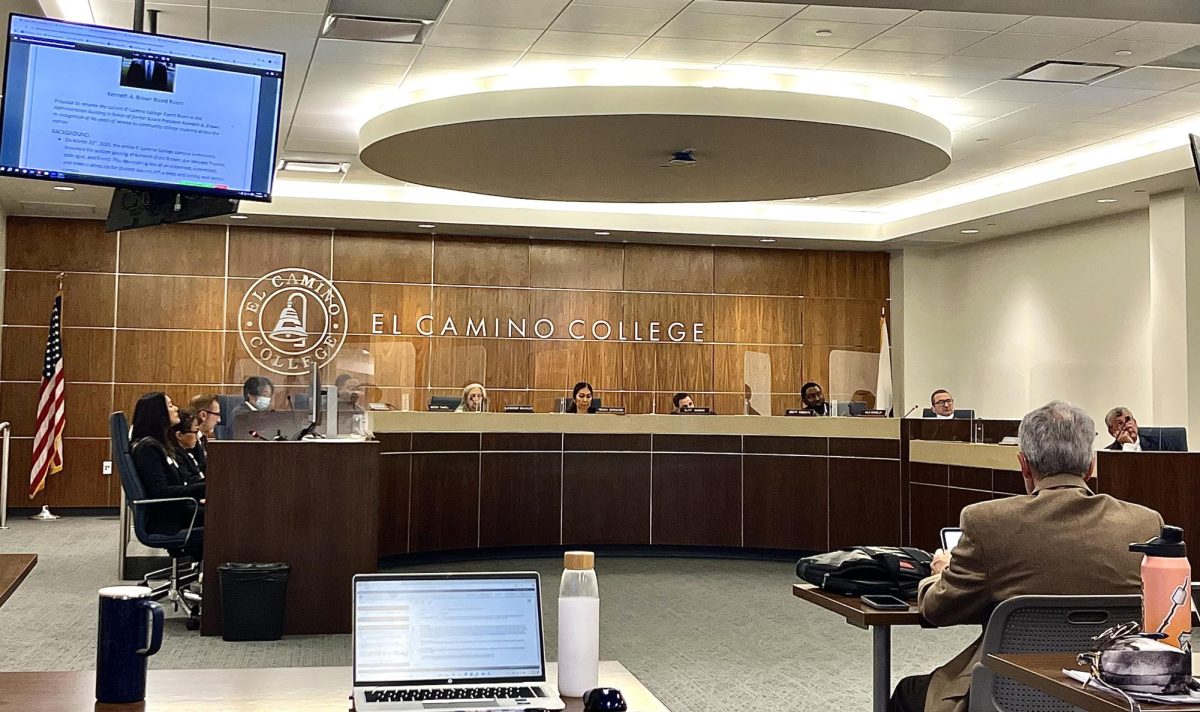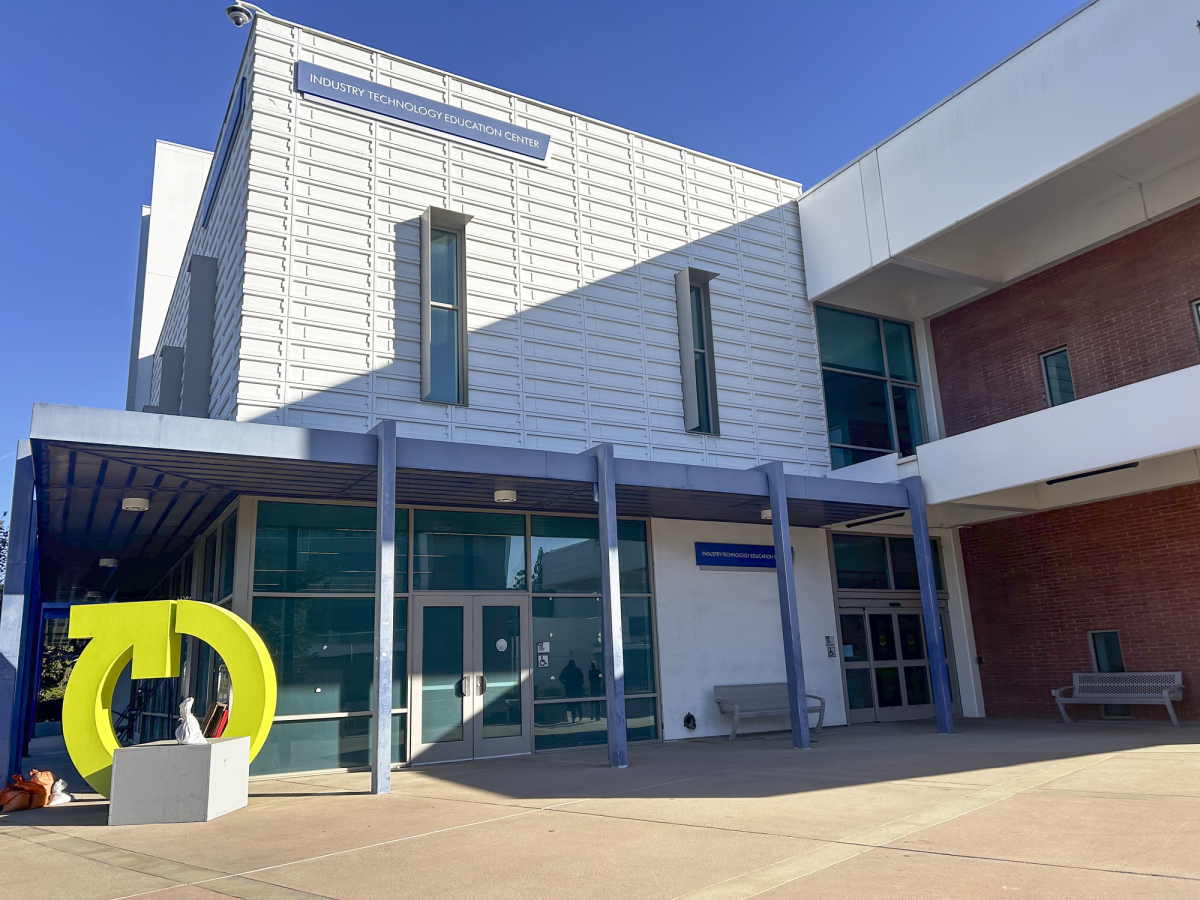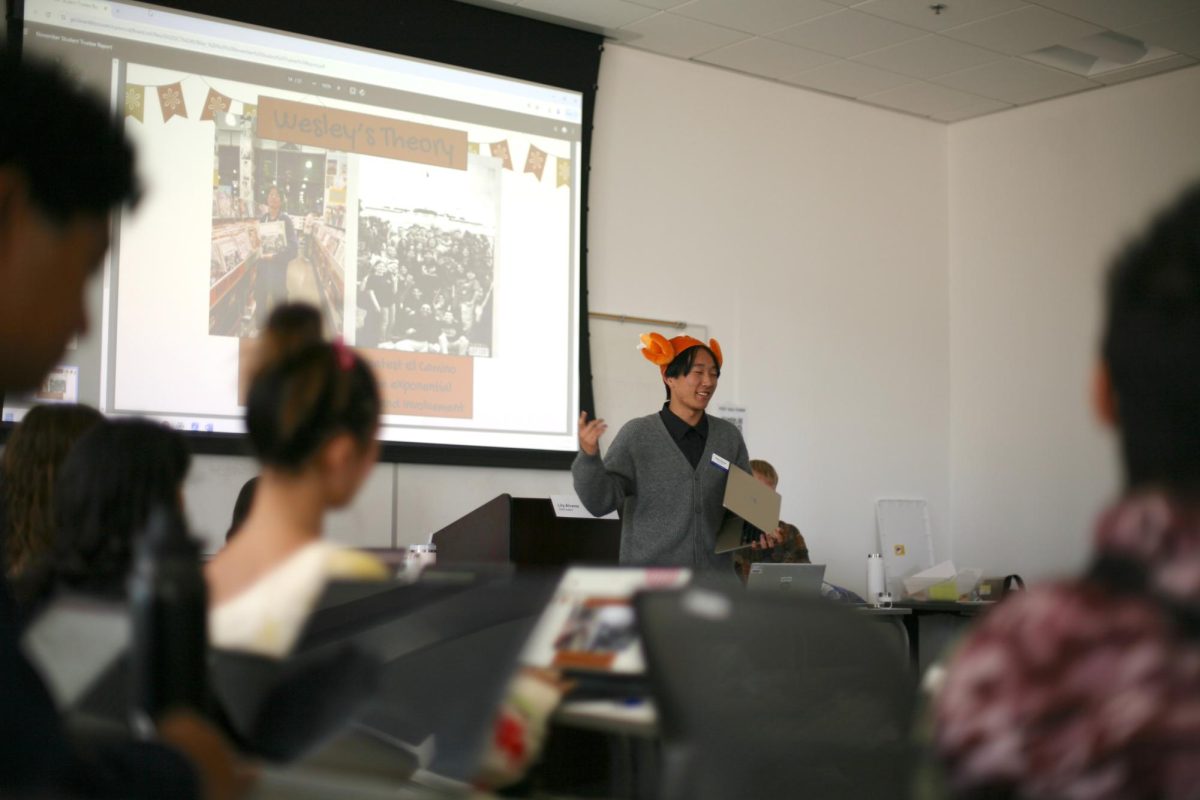Four of EC’s top debaters tackled the merits and demerits of a 5 percent faculty pay raise at the Campus Theater on March 31.
The entire auditorium was filled for the sold-out performance, with both students and faculty members listening intently to the team debate this controversial issue.
“The event was organized to demonstrate a policy debate between the debaters in order to present what the topics are. It was a demonstration to present it fairly and not to slant it in anyway,” Francesca Bishop, director of forensics, said.
The government team, which supported the 5 percent raise, and the opposition, who presented the opposing side, each illustrated the validity of both perspectives.
“Faculty have been required to do hundreds of hours of additional work without being compensated for it,” Brooke Matson, government team debater, said during the debate. “If you have extra work, you have to be compensated for it. We think faculty have had an increase in work load without any kind of increase in pay, and if there was, it was barely a cost of living adjustment,” she said.
While the government team presented the disadvantages to faculty members, the opposing team presented some faculty advantages and an argument for faculty job responsibility.
“Our faculty gets paid the highest in the first few years than other colleges according to a Santa Rosa study,” Nicholas Bishop, opposition team debater, said during the debate, “Faculty are hired to teach class and serve on committees. It was always part of their job description. They have to be able to uphold the educational process, but provide the best education that they can.”
Afterwards, debaters from both sides expressed that their goal was to provide people with information from both viewpoints so they can begin to think more independently about the issue.
“The point of this is to educate students on this one problem, so that other people start thinking about it,” Frank Masi, 19, international relations major, and debater for the opposition team, said. “I think it definitely opened some people’s eyes. I hope it allowed some people to see that both sides have a certain level of merit.”
The team felt that the debate would be a good format to present information in order to get people to think critically and come to their own conclusions.
“I think it was to educate on the major topic that is being talked about on campus,” Arielle Stephenson, 17, engineering major, and debater for the government team, said. “Most of the faculty and students are aware of the 5 percent raise. We think it was the best educational format to get people to understand the full scope.”
The performance gave students a new level of understanding of the topic and many came away with some newfound knowledge.
“It gives me more information and a deeper understanding. I saw the signs, but I didn’t know as much about it before,” Taylor Meyer, 21, computer science major, said.
Other students echoed Meyer’s appreciation for the way the debaters framed the issue.
“I came in with an opinion already. I feel everyone in general has an opinion, whether or not they have information. I think they did a good job presenting both sides,” Areli Navarro, 18, criminal justice major, said.
The opposing team concluded their argument with a compromise that offered faculty more than what the district had offered.
“I think it is interesting that the opposition wanted to do the 5 percent for the first year, then the one and a half percent and so on. Nobody on the debate team supported what the district was offering.” Francesca Bishop said. “I think it should come up from what the district is offering. The fact is we are 13th paid of 16 community colleges. We are three from the bottom.”




